Trade, Minerals, and the Green Transition in Greenland: A Conversation with Prime Minister Múte B. Egede
Greenland has recently become an epicenter of interest in natural resource investment and development in the Arctic. With accessible deposits of minerals needed to satisfy rising global demand, and fisheries exports as a key component of Greenland’s economy, as well as other trade products, Greenland is poised to capitalize on its strategic geographic location and natural resources. However, investments in these and others areas must limit environmental impacts on the fragile Greenlandic ecosystem and more broadly consider how to implement the Green transition. How can such investments bolster Greenland’s economy? What role can the United States play in facilitating environmentally and socially responsible development?
The Wilson Center’s Polar Institute and the Greenland Representation in Washington, DC hosted a conversation with Greenland Prime Minister Múte B. Egede about these topics, followed by an expert panel discussion.
Selected Quotes
Prime Minister Múte B. Egede
“We prioritize sustainable economic development as a strategic goal for creating a sufficient and climate resilient economy… It is the ambition of the government of Greenland to obtain a formal agreement with the United States in serving ongoing dialogue with the U.S. on trade and investment to support our goals. Climate is unfortunately not the only change we are experiencing. As Putin’s unacceptable aggression with the Russian invasion of Ukraine has only reminded us, it is crucial to strengthen cooperation, trade, and political ties between allies and friends.”
"In Greenland… we have always lived with our nature and used our nature, and if you, our partners in the Northern part of the world, can listen to the indigenous people—what they need, what they want—I think we can find a solution for this development… I have used some words in the last one year: ‘Nothing about us without us.’ So if you think about it this way and respect the people who are living there in the Arctic, I think we can find some solutions for the economic growth, and cultural growth, and development in all ways.”
“We are thinking to develop our economy with mining, but we are also thinking about developing our economy with the Green Transition. We have a lot of water in Greenland and a lot of potential to make some… solutions… I think that this is the way the world is thinking right now. The young people are thinking about the Green Transition and the climate changes, and maybe the older generations think a lot about oil exploration and mining exploration. But we need to think about the coming generations and… the wish that we invest in green solutions. So I think we need to rethink some of our ideas… in the last decades… we need to think about the new future, in the new Arctic, in the new world.”
Thomas Lauridsen
“The Green Transition applies to demand for many minerals. Therefore in the years to come, and now maybe more than ever before, Greenland has an opportunity to develop its mineral resource sector. By developing the mineral resource sector, Greenland can diversify its economy and skills through the new types of job offers in the industry and through the possibility for contracts to existing and new businesses. The mining sector can contribute to the treasury, and make Greenland… become more economically independent.”
“In the most direct role, the U.S. can facilitate environmental and socially responsible development by having U.S. companies come to Greenland and explore and develop mines in environmentally and socially responsible ways, and have U.S. financial institutions fund mining projects in Greenland and in doing so, demanding that it is done in a sustainable way as most financial institutions do. And more generally, if U.S. companies are demanding that the minerals they use in the in-products have been exploited in an environmentally and socially responsible way, that would benefit not only Greenland but I think the mining sector of the Western world in general.”
“Greenland has terms in place to secure environmental and socially responsible mining. It is secured by the government of Greenland demanding environmental impact assessment, social impact assessment, and the government is also setting terms for mine site reclamation and so forth… That said, Greenland needs more investment in its mining sector. The system has not been tested with major projects, nor has it been tested with renewable energy as a power supply.”
Speaker

Introductions

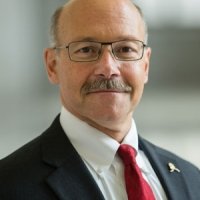
US Ambassador-at-Large for Arctic Affairs; Former Chair, US Arctic Research Commission
Panelists
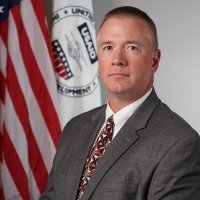

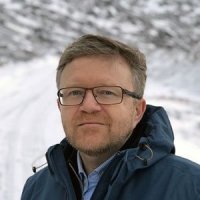
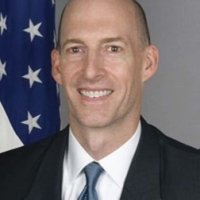
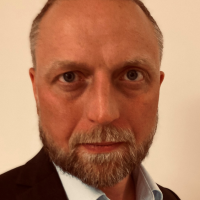
Hosted By

Polar Institute
Since its inception in 2017, the Polar Institute has become a premier forum for discussion and policy analysis of Arctic and Antarctic issues, and is known in Washington, DC and elsewhere as the Arctic Public Square. The Institute holistically studies the central policy issues facing these regions—with an emphasis on Arctic governance, climate change, economic development, scientific research, security, and Indigenous communities—and communicates trusted analysis to policymakers and other stakeholders. Read more


Environmental Change and Security Program
The Environmental Change and Security Program (ECSP) explores the connections between environmental change, health, and population dynamics and their links to conflict, human insecurity, and foreign policy. Read more
